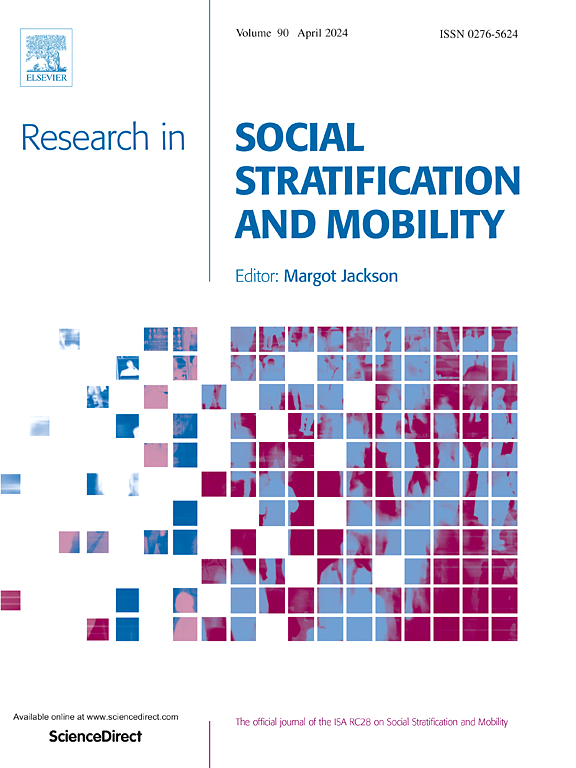Is temporary employment a stepping stone for unemployed immigrants?
IF 2
1区 社会学
Q1 SOCIOLOGY
引用次数: 0
Abstract
This study investigates whether temporary employment serves as a stepping stone or a trap for unemployed job seekers in Belgium, with a focus on differences between migrant and native-born populations. Using panel data from the Belgian Labour Force Survey (2017–2024) and propensity score matching, we estimate the short-term effects of entering temporary work on employment, permanent employment, and wages. Compared to remaining unemployed, temporary work significantly increases the likelihood of being employed and holding a permanent contract one year later, though it does not lead to higher wages. These benefits are broadly similar for migrant and native-born workers, but not all migrant subgroups benefit equally. Immigrant women, in particular, experience smaller gains than men, highlighting persistent gendered barriers to labour market integration. By contrast, differences by region of origin and length of stay are not significant. The positive effects of temporary employment are evident across contract types and occupational skill levels, with no consistent advantage for fixed-term over agency jobs. A complementary analysis shows that while temporary work outperforms continued unemployment, it yields substantially lower returns than entering permanent employment. Overall, temporary employment should be viewed neither as a panacea nor as a trap, but as a pathway offering modest, uneven, yet generally positive returns for diverse unemployed job seekers.
临时工作是失业移民的垫脚石吗?
这项研究调查了临时工作是比利时失业求职者的垫脚石还是陷阱,重点关注移民和本地出生人口之间的差异。利用比利时劳动力调查(2017-2024)的面板数据和倾向得分匹配,我们估计了进入临时工作对就业、永久就业和工资的短期影响。与失业相比,临时工作大大增加了一年后被雇用并持有永久合同的可能性,尽管它不会导致更高的工资。这些福利对移民和本地出生的工人来说大致相似,但并不是所有的移民群体都同样受益。特别是移民妇女的收入比男子少,这突出了劳动力市场一体化方面持续存在的性别障碍。相比之下,原籍地区和逗留时间的差异并不显著。临时就业的积极影响在合同类型和职业技能水平上都很明显,定期工作没有固定的优势。一项补充分析表明,虽然临时工作的表现优于持续失业,但它的回报远低于进入永久就业。总的来说,临时就业既不应被视为灵丹妙药,也不应被视为陷阱,而是一条为不同的失业求职者提供适度、不均衡但总体上是积极回报的途径。
本文章由计算机程序翻译,如有差异,请以英文原文为准。
求助全文
约1分钟内获得全文
求助全文
来源期刊
CiteScore
7.80
自引率
6.00%
发文量
46
期刊介绍:
The study of social inequality is and has been one of the central preoccupations of social scientists. Research in Social Stratification and Mobility is dedicated to publishing the highest, most innovative research on issues of social inequality from a broad diversity of theoretical and methodological perspectives. The journal is also dedicated to cutting edge summaries of prior research and fruitful exchanges that will stimulate future research on issues of social inequality. The study of social inequality is and has been one of the central preoccupations of social scientists.

 求助内容:
求助内容: 应助结果提醒方式:
应助结果提醒方式:


